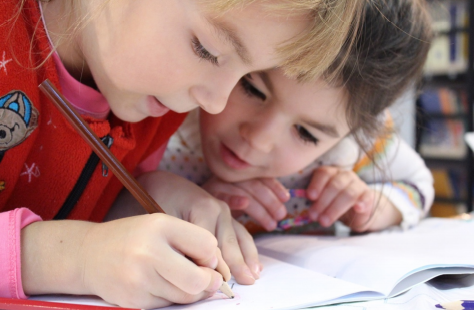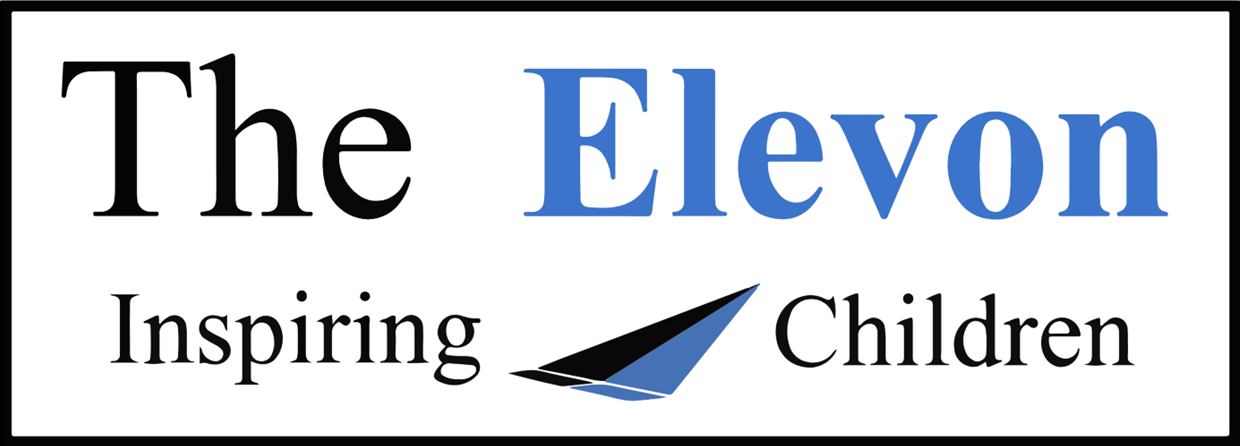 We live in an era where digital technology is growing at explosive rates. As the number of platforms and apps that children have access to has increased exponentially, there has been a decline in people-to-people interactions and increased digital technology-to-people interactions. Because advancements in technology and changes in human interactions go hand in hand, parents must remain vigilant that their children are developing life skills, enabling them to handle issues and problems commonly encountered in daily life effectively. Teaching children life skills is necessary for self-care and sufficiency— but it also allows children to develop socialization, reasoning skills, and healthy self-esteem. Children with life skills are independent thinkers, socialize and easily make new friends, and take action in situations where parents and teachers may not be around to help or intervene. The pandemic has hindered the ability of children worldwide to develop life skills. As a result, this blog will focus on some of the World Health Organization’s recommended life skills such as communication, making connections, critical thinking, self-awareness, and empathy (Hangoutagile, 2019) and ways to help children develop these essential skills.
We live in an era where digital technology is growing at explosive rates. As the number of platforms and apps that children have access to has increased exponentially, there has been a decline in people-to-people interactions and increased digital technology-to-people interactions. Because advancements in technology and changes in human interactions go hand in hand, parents must remain vigilant that their children are developing life skills, enabling them to handle issues and problems commonly encountered in daily life effectively. Teaching children life skills is necessary for self-care and sufficiency— but it also allows children to develop socialization, reasoning skills, and healthy self-esteem. Children with life skills are independent thinkers, socialize and easily make new friends, and take action in situations where parents and teachers may not be around to help or intervene. The pandemic has hindered the ability of children worldwide to develop life skills. As a result, this blog will focus on some of the World Health Organization’s recommended life skills such as communication, making connections, critical thinking, self-awareness, and empathy (Hangoutagile, 2019) and ways to help children develop these essential skills.
Effective communicating is perhaps the most critical life skill because it enables information to flow from one individual to another. Children improve communication skills when they engage in back-and-forth conversations – through words, gestures, or symbols to indicate what they want to convey. Nevertheless, the omnipresence of digital technology and physical distancing because of COVID-19 impacts the ways children communicate with others. Some ways parents could enhance children’s communication skills are through video conferences and encouraging the use of age-appropriate video chat app such as Jus Talk Kids. Children who become effective communicators will foster trust with other people, prevent or resolve conflicts, and develop better relationships with others.
Nonetheless, a crucial benefit of effective communication is making connections with others. Children who can make connections will benefit from cognitive enhancement and social skills development. Therefore, parents should create opportunities for children to connect with others, especially in an increasingly technological world. Mealtime is an excellent time for children to make connections because they can discuss the type of meal, likes and dislikes, etc. Therefore, parents can partner with other parents to have virtual meals to create a space for children to make connections. Moreover, whenever COVID-19 restrictions become obsolete, children could connect in the natural world. The beneficial effects of the above interactions for children could be the improvement of communication and social skills.
Critical thinking is another essential life skill and a vital academic skill for functioning in a complex world. For children, observation is the earliest critical thinking skill enabling parents to understand the processing of information and how they make sense of the environment. Parents could enhance children’s critical thinking skills by not micromanaging their problems but guiding them through the problem-solving process. The best gift you can give your children is to help them think through their choices and actions. Some of the questions you could ask your children during the thinking process are: What do you think? What would happen if you do….? How would you fix this? What could you have done differently? Be mindful that the questions should be age-appropriate and fit the situation.
Self-awareness is a life skill that is receiving worldwide attention because the World Health Organization sees it as the panacea for bridging cultures. Self-awareness means having the ability to understand your thoughts, emotions, and values and know-how those factors influence behavior. Children who develop self-awareness have insight into who they are, why they react as they do, and identify self-improvement. Learning to be self-aware isn’t easy, even for adults. However, when children can identify emotions, it’s an excellent time to start teaching self-awareness. One method that parents can use to teach children self-awareness is through the Thoughts-Actions-Feelings Circle, a tool that depicts how circumstances lead to thoughts, then to feelings, then to actions, and then to results.
- Empathy is an important life skill because it enables children to build relationships and become more tolerant and accepting of others. Psychologist Thom Markham defines empathy as having the ability to “understand and share another person’s experiences and emotions.” Some researchers believe that empathy might be a critical key to unlock children’s critical thinking, collaboration, and team-building skills, necessary competencies for the 21st century. Considering that parents are children’s first teachers, they can help their children develop empathy by talking to them about their feelings and others. For example, if a child feels sacred about an animal, parents should acknowledge the child’s feelings, provide a sense of security for the child, help the child process fear, and talk about your phobia.
Finally, I believe that digital literacy is a must-have life skill for 21stcentury children because, by age 5, many of them are exposed to so much digital information. Digital literacy includes a wide array of topics. However, my focus is information sharing. We live in a society where communication and access to information are through various digital platforms; digital literacy enables students to assess reliable information. It is essential to teach children that digital platforms have been designed to maximize engagement rather than provide trustworthy information. For that reason, children need to learn to verify information rather than accepting it at face value. One suggestion is to surf the web with your children at a young age and point out good websites and questionable ones. The website’s URL indicates the source of the information, for example, .org (not-for-profit), .edu (educational institutions), and .gov (federal government site). Parents should be mindful that teaching their children to identify reliable information online will be a work in progress as digital platforms evolve.

Markham, T (2016, November 6). Why Empathy Holds the Key to Transforming 21St Century Learning.
Dr. Marcia T. Caton, Life Coach & Author
Book: My Babysitter is a Smartphone
Website: www.marciatcaton.com
Instagram: marcia.t.caton
Facebook: @MarciaTCaton
 We live in an era where digital technology is growing at explosive rates.
We live in an era where digital technology is growing at explosive rates.




